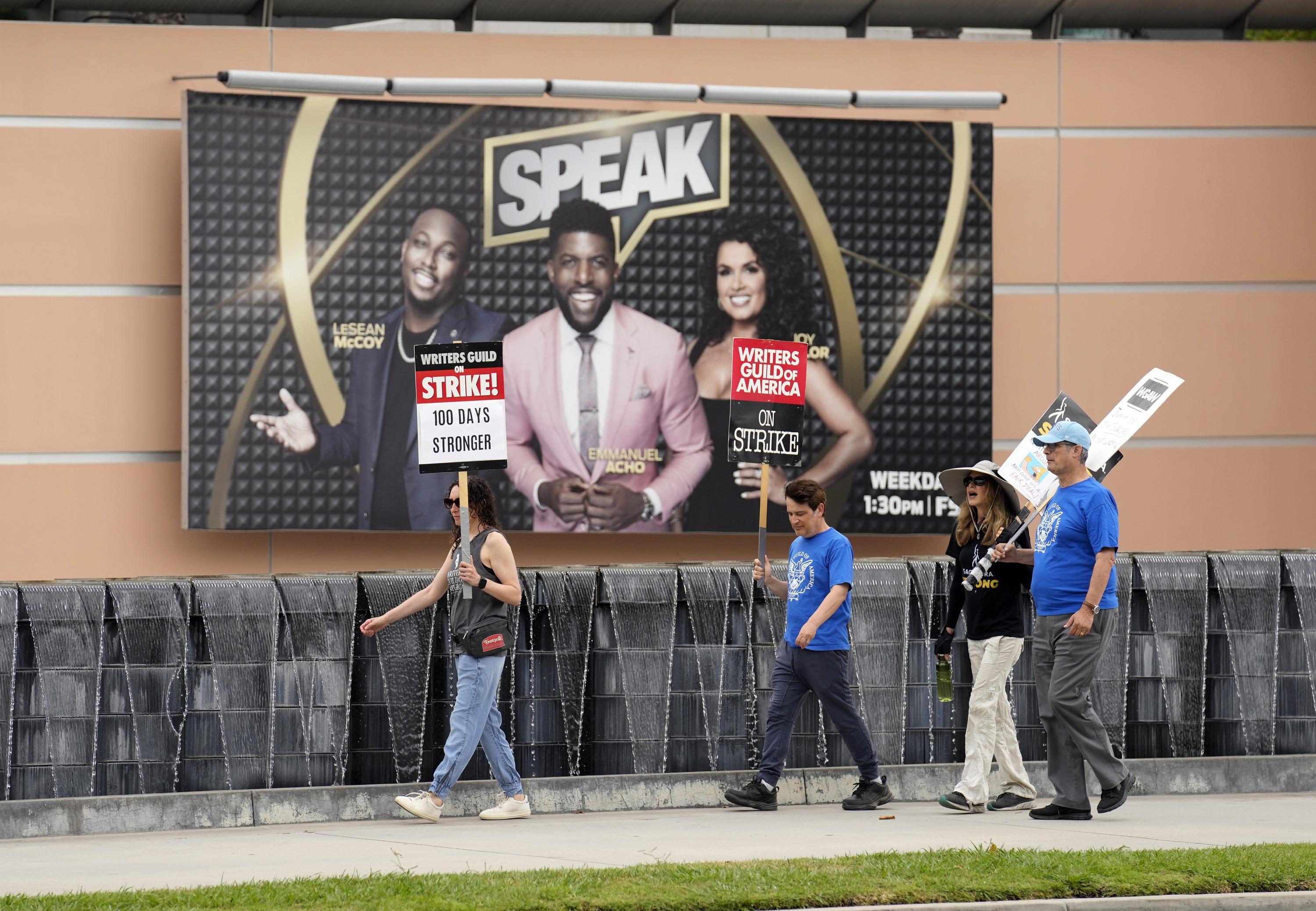 Picketers walk in front of an advertisement in Los Angeles on Monday. (PHOTO / AP)
Picketers walk in front of an advertisement in Los Angeles on Monday. (PHOTO / AP)
LOS ANGELES — Imagine Hollywood without the iconic call, "Lights, Camera, Action!" To date, it has been more than 100 days of silence. Not on screen, but behind it.
Writers and actors in the United States have pressed "pause", and the impact of their strike is rippling out far and wide.
After enduring the three-year COVID-19 pandemic, Hollywood is experiencing its new nightmare — its $134 billion film and TV industry has shuddered to standstill, facing the challenge of a combined union action by the Writers Guild of America and the Screen Actors Guild. They have been collectively on strike for more than 100 days.
Although their cause is seen by many as justified, its economic repercussions reached well beyond the glitz and glamor of the entertainment capital to all US states, especially those with high concentrations of production activity, such as California, New York and Georgia.
Being out of work has dealt a heavy blow not just to actors and writers, but also to the very fabric of the entertainment industry's economic ecosystem and the service industries that support it.
The current strike might have already drained California of at least $3 billion, an estimate grounded in the economic analyses from the 2007 Writers Guild of America strike, said Todd Holmes, professor at California State University, Northridge.
Rendering unemployment
Adjusting for inflation, Holmes linked the past strike's $2.1 billion in lost revenues, which rendered 37,700 jobless, to the current $3 billion calamity.
Local restaurants, prop houses, set constructors, dry cleaners, professional drivers, florists, musicians, insurance companies, banks, payroll companies, realtors, fitness gyms and more — all feel the weight of the standoff.
"Many around this industry are suffering," Holmes said. "It's been challenging."
Lee Ohanian, economics professor at the University of California, Los Angeles, said nearly 20 percent of Los Angeles' income comes from those in entertainment and related fields. When they spend less, everyone feels it.
And with entertainment industry wages notably higher than the average, any dip in their discretionary spending, especially on big-ticket items such as cars, appliances and homes, sends amplified shockwaves through the whole country.
Award-winning actor Billy Porter recently revealed in an Evening Standard interview that he had to sell his house to save money during the strike.
In addition, Hollywood's current labor dispute may make history.
Previous strikes in 1988 and 1960 lasted 22 and 21 weeks respectively. In the 15th week of the current standoff, it is grimly plausible that this might be the longest.
Only time will tell what the long-term fallout will be nationwide.


